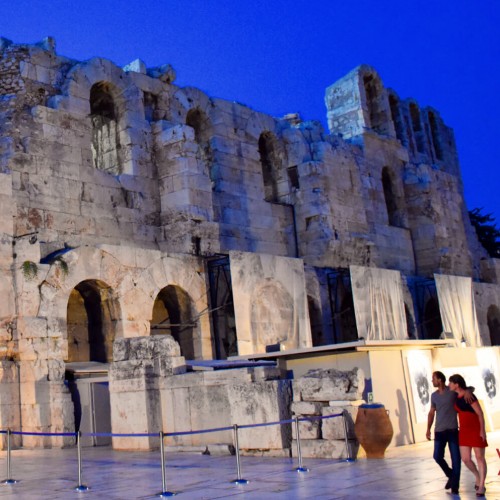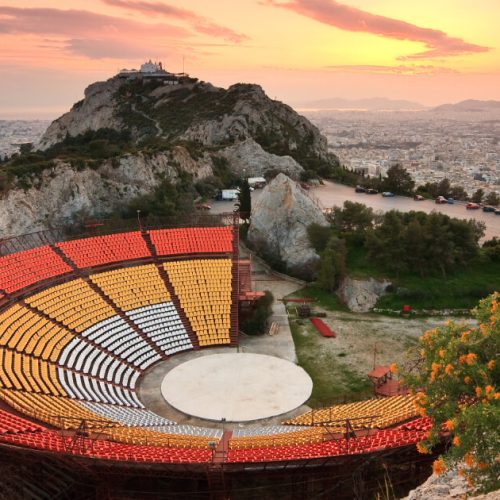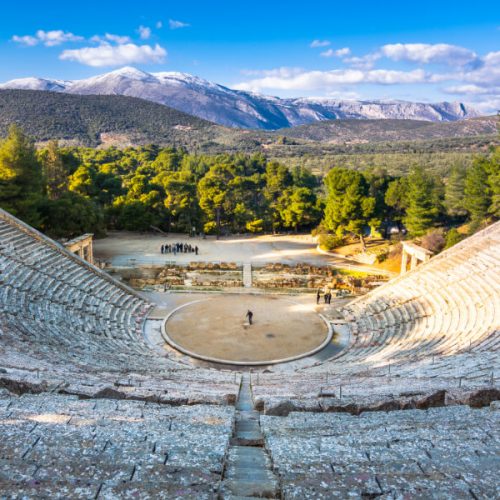
Mt Lycabettus in Athens Photograph: Why Athens
Athens Attractions
It was in the 5th Century BC when Athens had its renaissance; a time when arts, science and philosophy prospered. Athens has a recorded history spanning 3,400 years and has been inhabited since the 11th Millennium BC. With ruins and archaeological sites dating back thousands of years, the crown jewel of Athens has always been the rock that towers proudly above the city. Once you climb to the top, you will see what all the fuss is about. Its temples are the most influential buildings in Western architecture.
Beyond the Acropolis, other Athens attractions include the Agora which was once the heart and soul of the city for 1,200 years. It was the centre for all civic activities and where Socrates once addressed his public. Above all, it was where democracy was born and reigned. Here you can get up close to the ruins whilst you wonder around the grounds and get a sense of what life was like thousands of years ago.
Getting around Athens tourist attractions
Entrance fees to sites and attractions in Athens are very low, particularly in comparison to other tourist attractions around Europe, despite several price hikes over the years. The historical centre of the city was converted into a three kilometre pedestrian zone in time for the 2004 Olympic games, making it extremely easy to access the major archaeological sites by foot. If you’re keen to cover the walk in one day, you should start at the temple of Olympian Zeus and head to Hadrian’s Arch. From here you can walk along Dionyssiou Areopagitou Street, where you will pass by the ancient open Theatre of Dionyssos, where the ancient plays of Sophocles and Euripides were originally performed. Another impressive theatre nearby is the Odeon of Herodes Atticus. Today, it is the official and modern day venue of the Athens Festival held in the summer months. From here, you’re set to climb the sacred rock of the Acropolis which does require some effort, so be sure you are well hydrated.
-
Lycabettus Hill
Standing 277 meters above sea level, Lycabettus Hill (sometimes spelt Lykavitos) is the highest point of Athens. Although a beautiful walk up via a circular path, it will be a test of endurance and a challenge in summer. Check for the latest events on at the Lycabettus Theatre here A funicular or cliff railway can…
Read More
-
Odeon of Herodes Atticus
One of the legendary sites that sits beneath the slopes of the Acropolis on the southwest side, is the stunning open-air theatre, Odeon of Herodes Atticus. When Pausanias, the Greek traveller and geographer from the second century AD, visited Athens during the reign of Marcus Aurelius, he described the Odeon theatre as “the finest building…
Read More
-
Lycabettus Theatre
The large open-air Lycabettus theatre will re-open for the Athenian Autumn in 2023, following a 15-year hiatus. Located near the car park of Lycabettus Hill, the 3000-seat outdoor venue has undergone a complete revamp, bringing it back as the exemplary cultural landmark of Athens it once was. Having hosted more than 1000 concerts during its…
Read More
-
Discover the Athens Riviera
Sun, sand and sea go hand-in-hand with the ancient ruins of Athens. Experience good food, great beaches and all round good living along the beautiful Athens Riviera. Time travels evermore slowly along the coast of Athens, that stretches for 55km (34 miles) from Faliro to Cape Sounion. In around 30 minutes from the historical centre,…
Read More
-
Evzones uniform, the costume of an elite Greek soldier
The Greek Presidential Guard or Evzones are a group of elite Greek soldiers who are trained to perform various ceremonial duties. They stand guard at the Tomb of the Unknown Soldier and the Presidential Palace and also raise and lower the flag at the Acropolis every Sunday. The Evzones uniform is handmade with intricate detail, taking many months to complete…
Read More
-
Getting to the ancient theatre of Epidaurus from Athens
Visiting the Epidaurus theatre is an absolute highlight and particularly when there is a performance scheduled. There are daily buses that can take you direct or via the pretty town of Nafplion. Buses depart from the bus depot located in Kifissos. Special bus timetables operate to co-ordinate with theatre performances.
Read More







